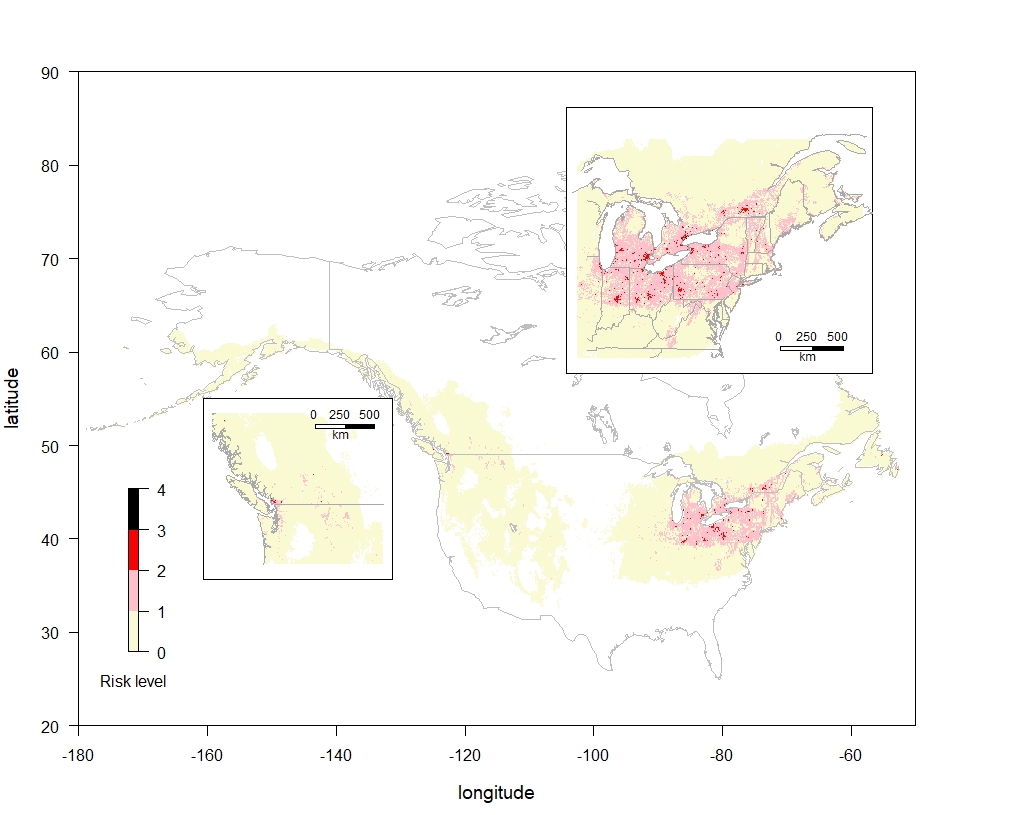Positions
Temperature and Transients: PhD Positions in Population Ecology 2022
We have two graduate positions focused on developing mechanistic models that relate thermal responses to short term population dynamics (transients). Our lab uses large datasets, computational, statistical and mathematical approaches to answer questions about ecothermic invasive species, species at risk and ecosystem engineers. We are particularly interested in the role of temperature extremes, variance and autocorrelation in determining risks of invasive, extinction and ecosystem impacts.
Positions to begin January 2022, but a remote start is possible depending on travel restrictions at that time. We provide four years of funding for students in a PhD program. Please send an inquiry email providing an unofficial transcript, a brief statement of research interests in ecology, and contact information for three references (kcuddingATuwaterlooDOTca). The application for graduate studies is here (https://uwaterloo.ca/graduate-studies/application-admission/apply-online), but please contact me directly regarding the deadlines. Applicants must meet the standards for entry into the Biology (uwaterloo.ca/biology/graduate-studies/admissions), or Applied math graduate program (uwaterloo.ca/applied-mathematics/graduate-students/applying)
FILLED Undergrad technician Fall 2021
Lab duties involve insect and plant care. MUST be available 2-3 days per week for 2-3 hrs between 9:30 am - 4:30 pm including weekends and holidays. Please send student number and contact info for 2 references to kcuddingATuwaterlooDOTca.
Other PhD opportunities in ecological modelling and quantitative ecology
|
Potential research projects include (but are not limited to) the following: 1. Incorporating ecosystem engineering into models of interacting species 2. Developing and testing models of the effect environmental variation on invasive species 3 Determining the effect of plant morphology on microclimate, and predicting pest species dynamics using 3D simulation. There is scope for experimentation as well as modelling depending on student interests. Figure: Impact risks of the invasive weed Giant Hogweed |
 |
More info/thoughts about grad research
OverallThe thing about our work is that we lie exactly on the interface between theory and experiment, math and stats, conceptual and applied. MSc students generally fall on either the experimental or the mathematical side of the line, and to one side of the conceptual vs applied division, but ideally a PhD student would be willing to learn about mathematical and simulation models as well as statistical techniques, and develop ecological theory as well as applying the theory to a management problem
Funding outside of these suggested topicsFor PhD program, I would hope the student would develop a research project related to the interests of the lab, but it would not necessarily have to be one of these projects. I'm also interested in working on smart ways of including ecosystem engineering in network models. Integral projection models of invasive plants (e.g. Giant Hogweed), and many other things. A good student is the most important thing. I am happy to consider other research topics IF they do not require experimental funding outside the areas listed here (i.e., I am not going to fund your trips to Africa to collect data on bird species unless you find the majority of your own funding for the research).